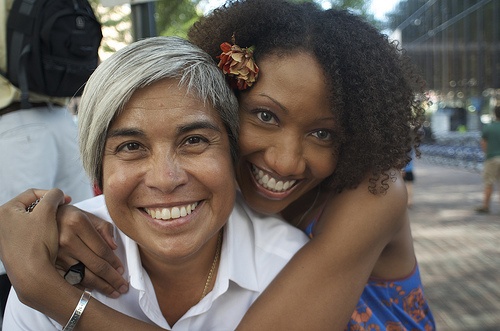Can gay marriage win in the South?

When he was running for the Illinois state senate in 1998, Barack Obama said that he was "undecided" on the issue of gay marriage. But last year, now-President Obama famously declared that his "evolving" views had led him to support same-sex marriage as a constitutional right.
As goes Obama, so goes the nation: According to opinion polls, support for gay marriage has been steadily increasing over the years, and since 2011 a majority of the U.S. public says it supports gay marriage.
But what about the South? How are views about gay marriage changing in the region? And how do they compare to the rest of the country?
In November 2012, the Pew Research Center for People and the Press released one of the few polls to delve into the question of regional differences in support for gay marriage.
The poll revealed two important findings. One, Southern states lagged behind the rest of the country -- in some cases, significantly -- in their support for gay marriage. In fact, in only two areas of the country did the Pew survey find more people opposed to gay marriage than supporting it, and they were both in the South:
1) The "South Atlantic," where 42 percent were in favor compared to 48 percent opposed (Pew included Florida, Georgia, North Carolina, South Carolina, Virginia and West Virginia in this sub-region); and,
2) The "South Central," where only 35 percent support gay marriage, compared to 56 percent against (Alabama, Arkansas, Kentucky, Louisiana, Mississippi, Oklahoma, Tennessee and Texas).
That stands in stark contrast to the New England area, which Pew found had come to support gay marriage by a two-to-one margin.
But Pew also found that, even in the South's apparent bastions of social conservatism, support for gay marriage has been growing.
Since 2003, Pew's surveys find that approval has grown by 14 points in both the South Atlantic and South Central -- a rise roughly in line with the nation's increasing embrace of gay marriage over the last decade (15 points), and a bigger increase than in places like the Mountain West (11-point growth).
But what does this mean for state efforts to legalize or block gay marriage, the focus of the Supreme Court's deliberations over California's Proposition 8 -- an initiative passed by voters in 2008 to ban same-sex unions just months after the California Supreme Court upheld them?
As polling wizard Nate Silver at The New York Times observes, the plodding pace of change in views suggest that change is coming -- but it may be years before majorities in Southern states will back gay marriage.
According to Silver's projections, it won't be until 2016 that a majority of voters in Florida and Virginia embrace gay marriage. For Kentucky, North Carolina, Tennessee, Texas and West Virginia, Silver doesn't think the tipping point will come until 2020. (Silver stops at 2020, and in his analysis, the remaining Southern states -- clustered in the Deep South -- will at that point still be in the "opposed" column.)
One undertow pulling down support for gay marriage in the South is the region's religious conservatism. Christian evangelicals are one of the groups least supportive of same-sex marriage.
But recent Pew surveys find that even that is changing: A growing share of Southerners are "religiously unaffiliated," and even among white evangelicals the number saying that "homosexuality should be accepted" rather than condemned has grown from 22 percent to 30 percent over the last decade.
In other words, like Obama and the nation as a whole, Southern views on gay marriage are slowly but steadily evolving.
IMAGE: Carman Guzman and Ikeita Cantu got married in Canada because they don't think their home state of Virginia will legalize gay marriage in their lifetimes. (Youth Radio/Flickr)
Tags
Chris Kromm
Chris Kromm is executive director of the Institute for Southern Studies and publisher of the Institute's online magazine, Facing South.
